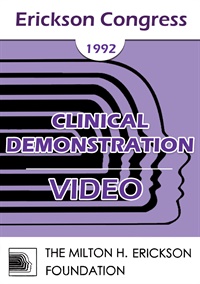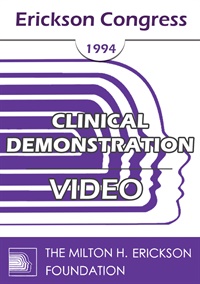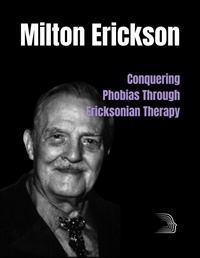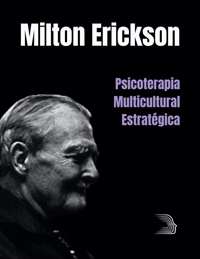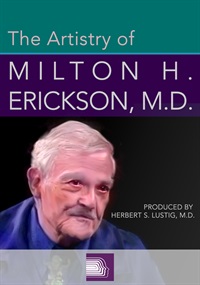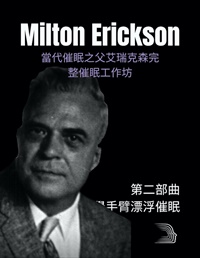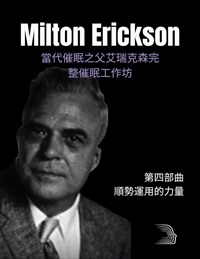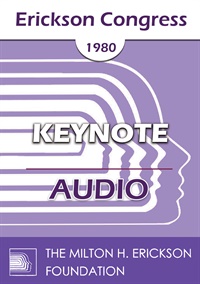
- Average Rating:
- Not yet rated
- Topic Areas:
- Keynotes | Psychotherapy | Ericksonian Hypnosis and Therapy Techniques | Ericksonian Psychotherapy | Hypnotherapy | Milton Erickson
- Categories:
- Erickson Congress 1980 | Erickson Congress | Pioneers in Couples and Family Therapy
- Faculty:
- Jay Haley, MA
- Duration:
- 1:01:07
- Format:
- Audio Only
- Original Program Date:
- Dec 05, 1980
- Short Description:
- Jay Haley reflects on his personal experiences with Milton Erickson, offering insight into Erickson’s distinctive use of metaphor, indirect communication, and strategic symptom management. He highlights Erickson’s focus on brief, practical therapy, family involvement, and adaptability to each client’s needs. The talk underscores Erickson’s lasting influence on modern psychotherapy and his pragmatic, often unconventional approach.
- Price:
- $15.00 - Base Price
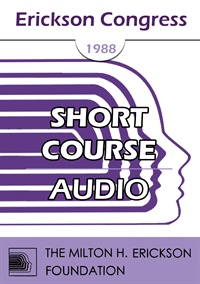
- Average Rating:
- Not yet rated
- Topic Areas:
- Children and Adolescent Therapy | Ericksonian Hypnosis and Therapy Techniques | Trance
- Categories:
- Erickson Congress | Erickson Congress 1988
- Faculty:
- Gary Ruelas, DO, PhD
- Duration:
- 1 Hour 28 Minutes
- Format:
- Audio Only
- Original Program Date:
- Dec 11, 1988
- Short Description:
- Short Course 37 - The Entrancement of Children, Developmental Assessment and Treatment of Children and Youth - Gary Ruelas, MA
- Price:
- $15.00 - Base Price
- Average Rating:
- Not yet rated
- Topic Areas:
- Clinical Demonstrations | Ericksonian Hypnosis and Therapy Techniques
- Categories:
- Erickson Congress | Erickson Congress 1992
- Faculty:
- Michael Yapko, PhD
- Course Levels:
- Master Degree or Higher in Health-Related Field
- Duration:
- 1:00:33
- Format:
- Audio and Video
- Original Program Date:
- Dec 03, 1992
- Short Description:
- This clinical demonstration shows how hypnosis can shift clients from hopelessness to possibility by building positive expectancy. Through metaphor, suggestion, and experiential learning, the session helps clients recognize that experience is malleable and the future can differ from the past. Participants observe how indirect language, dissociation, and utilization foster hope, self-efficacy, and openness to change—core resources in treating depression and expanding clients’ sense of agency.
- Price:
- $29.00 - Base Price
- Average Rating:
- Not yet rated
- Topic Areas:
- Clinical Demonstrations | Resources | Ericksonian Hypnosis and Therapy Techniques
- Categories:
- Erickson Congress | Erickson Congress 1994
- Faculty:
- Michael Yapko, PhD
- Course Levels:
- Master Degree or Higher in Health-Related Field
- Duration:
- 54:49
- Format:
- Audio and Video
- Original Program Date:
- Dec 10, 1994
- Short Description:
- This clinical demonstration uses hypnosis to help a client access inner resources and self-trust while navigating anxiety and uncertainty. Through age regression, metaphor, and guided exploration, the session connects early experiences of curiosity and discovery to present challenges, showing how empowerment arises from embracing the unknown. Participants observe how hypnosis fosters self-awareness, resilience, and confidence in managing life’s unpredictability with courage and balance.
- Price:
-
Sale is $29.00
price reduced from Base Price - $59.00
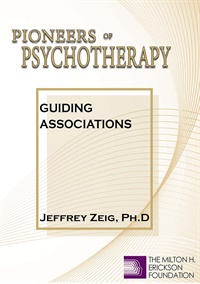
- Average Rating:
- Not yet rated
- Topic Areas:
- Clinical Demonstrations | Ericksonian Hypnosis and Therapy Techniques | Ericksonian Psychotherapy | Utilization | Humor | Hypnosis | Psychotherapy
- Bundle(s):
- Pioneers of Psychotherapy Bundle
- Categories:
- Pioneers of Psychotherapy | Evolution of Psychotherapy | Evolution of Psychotherapy 1995
- Faculty:
- Jeffrey Zeig, PhD
- Course Levels:
- Master Degree or Higher in Health-Related Field
- Duration:
- 00:57:00
- Format:
- Audio and Video
- Original Program Date:
- Dec 14, 1995
- Short Description:
- Zeig (1995) demonstrates the Ericksonian approach to psychotherapy while working with Carol, a woman whose nail-biting habit is rooted in anxiety. After gathering information on her personal history, Zeig helps Carol utilize her values and history to affect change. The process is both humorous and dramatic. After working to change associations linked to the problem behavior, Zeig offers Carol an ordeal that will produce a "guaranteed cure." Hypnosis is offered as the "dessert", rather than the main course. Ericksonian approach to psychotherapy.
- Price:
- $59.00 - Base Price
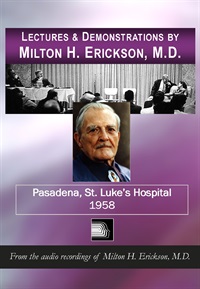
- Average Rating:
- Not yet rated
- Topic Areas:
- Clinical Demonstrations | Milton Erickson | Ericksonian Hypnosis and Therapy Techniques | Hypnosis
- Categories:
- Erickson Materials | Lectures & Demonstrations | Milton H. Erickson Collections
- Faculty:
- Milton H. Erickson, MD
- Duration:
- 7:01:11
- Format:
- Audio Only
- Original Program Date:
- May 02, 1958
- Short Description:
- Dr. Erickson does a lecture and demonstration at Pasadena, St. Luke’s Hospital 1958
- Price:
- $62.00 - Base Price
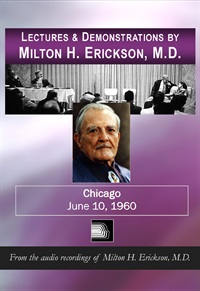
- Average Rating:
- Not yet rated
- Topic Areas:
- Hypnosis | Ericksonian Hypnosis and Therapy Techniques | Milton Erickson | Binds | Resistance
- Categories:
- Erickson Materials | Lectures & Demonstrations | Milton H. Erickson Collections
- Faculty:
- Milton H. Erickson, MD
- Duration:
- 3:57:01
- Format:
- Audio Only
- Original Program Date:
- Jun 10, 1960
- Short Description:
- During this seminar, Dr. Erickson describes essential skills for working with resistant patients, the use of permissive language, ordeal therapy, geometric progression, and therapeutic double binds. Erickson conducts a demonstration, answers questions from the audience, and elaborates on his thinking with case illustrations that include: sexual dysfunction, stuttering, bed wetting, childhood eating disorders, compulsive habits, phobias and self-defeating behavior.
- Price:
- $40.00 - Base Price
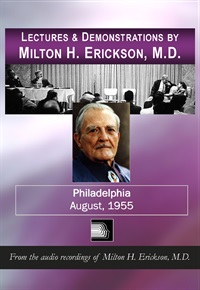
- Average Rating:
- Not yet rated
- Topic Areas:
- Hypnosis | Milton Erickson | Dissociation | Unconscious Processes | Ericksonian Hypnosis and Therapy Techniques
- Categories:
- Erickson Materials | Lectures & Demonstrations | Milton H. Erickson Collections
- Faculty:
- Milton H. Erickson, MD
- Duration:
- 2:17:27
- Format:
- Audio Only
- Original Program Date:
- Aug 01, 1955
- Short Description:
- In this set, Erickson communicates the timeless principles of hypnosis that he observed, discovered and utilized. He emphasizes the paramount importance of protecting the patient and establishing trust as the very foundation of the cooperative relationship characteristic of hypnosis. He stresses the importance of understanding the meaningful need of the patient and reviews, with many examples, the techniques of rehearsal, uncovering, dissociation, regression, time-distortion, revivification, visualization, orientation to the past and to the future, trusting the unconscious mind, and post-hypnotic suggestion.
- Price:
- $20.00 - Base Price
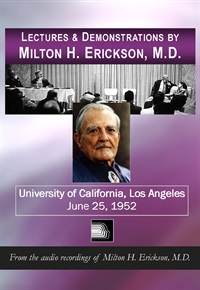
- Average Rating:
- Not yet rated
- Topic Areas:
- Hypnosis | Milton Erickson | Ericksonian Hypnosis and Therapy Techniques | Hypnotic Phenomena
- Categories:
- Erickson Materials | Lectures & Demonstrations | Milton H. Erickson Collections
- Faculty:
- Milton H. Erickson, MD
- Duration:
- 5:32:57
- Format:
- Audio Only
- Original Program Date:
- Jun 25, 1952
- Short Description:
- Five hours of instruction by Dr. Erickson on two general topics: Control of Psychological Functions by Hypnosis and Hypnotic Approaches to Therapy.
- Price:
- $62.00 - Base Price
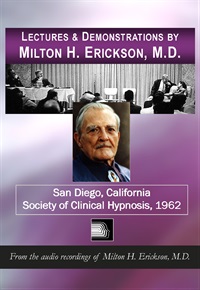
Lectures & Demonstrations of Milton H. Erickson, MD – San Diego - Society of Clinical Hypnosis, 1962
- Average Rating:
- Not yet rated
- Topic Areas:
- Hypnosis | Milton Erickson | Ericksonian Hypnosis and Therapy Techniques | Family Therapy | Pain and Healing | Sex and Sexuality
- Categories:
- Erickson Materials | Lectures & Demonstrations | Milton H. Erickson Collections
- Faculty:
- Milton H. Erickson, MD
- Duration:
- 5:29:03
- Format:
- Audio Only
- Original Program Date:
- Apr 29, 1962
- Short Description:
- Audio recording of Dr. Erickson describing essential differences between traditional hypnosis and modern hypnosis.
- Price:
- $50.00 - Base Price
- Average Rating:
- Not yet rated
- Topic Areas:
- Ericksonian Hypnosis and Therapy Techniques | Phobia | Milton Erickson | Hypnosis | Hypnotherapy | Strategic Therapy
- Categories:
- Erickson Streaming Video Collection | Erickson Materials | Milton H. Erickson Collections
- Faculty:
- Jeffrey Zeig, PhD | Milton H. Erickson, MD
- Course Levels:
- Master Degree or Higher in Health-Related Field
- Duration:
- 1 Hour 12 Minutes
- Format:
- Audio and Video
- Original Program Date:
- Aug 13, 2020
- Short Description:
- This video contains the best illustration of how Milton Erickson's handles cases presented to him. Using both hypnotherapy and strategic directives, Erickson works with a woman who has a phobia of a flying in a plane. This significant case exemplifies the fundamental principles and practices of an Ericksonian approach. These can be applied to other presenting problems and used by clinicians who subscribe to other treatment methodologies for a particular problem.
- Price:
- $49.95 - Base Price
- Average Rating:
- Not yet rated
- Topic Areas:
- Milton Erickson | Multicultural | Ericksonian Hypnosis and Therapy Techniques | Utilization | Hypnosis | Psychotherapy | Strategic Therapy
- Bundle(s):
- Spanish Erickson Video Bundle
- Categories:
- Erickson Streaming Video Collection | Erickson Materials | Milton H. Erickson Collections | Spanish | World Languages
- Faculty:
- Jeffrey Zeig, PhD | Milton H. Erickson, MD
- Course Levels:
- Master Degree or Higher in Health-Related Field
- Duration:
- 59 Minutes
- Format:
- Audio and Video
- Original Program Date:
- Aug 13, 2020
- Short Description:
- Milton Erickson a menudo aconsejaba a los estudiantes de psicoterapia que estudiaran antropología para que la terapia pudiera proporcionarse desde la perspectiva del trasfondo cultural del cliente. En el video, Erickson usa su comprensión de la orientación cultural cuando trabaja con un adolescente donde el problema que se presenta es un defecto del habla. Este es un caso muy informativo del uso de procesos estratégicos y sistémicos que se pueden aplicar a otros problemas presentes.
- Price:
- $19.95 - Base Price
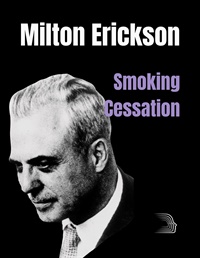
- Average Rating:
- Not yet rated
- Topic Areas:
- Ericksonian Hypnosis and Therapy Techniques | Milton Erickson | Addiction | Habits | Tailoring | Hypnosis
- Categories:
- Erickson Streaming Video Collection | Erickson Materials | Milton H. Erickson Collections
- Faculty:
- Jeffrey Zeig, PhD | Milton H. Erickson, MD
- Course Levels:
- Master Degree or Higher in Health-Related Field
- Duration:
- 1h 14m
- Format:
- Audio and Video
- Original Program Date:
- May 07, 2021
- Short Description:
- A client asks Erickson to help him stop smoking tobacco. Rather than using a formula, Erickson tailors a treatment approach to both address underlying problems and elicit resources.
- Price:
- $39.95 - Base Price
- Average Rating:
- Not yet rated
- Topic Areas:
- Hypnosis | Milton Erickson | Psychotherapy | Ericksonian Hypnosis and Therapy Techniques | Ericksonian Psychotherapy | Trance
- Categories:
- Artistry of MHE | Featured | Milton H. Erickson Collections
- Faculty:
- Herbert S. Lustig, MD | Milton H. Erickson, MD
- Course Levels:
- Master Degree or Higher in Health-Related Field
- Duration:
- 01:40:00
- Format:
- Audio and Video
- Original Program Date:
- Apr 28, 1974
- Short Description:
- This video involves a therapy session with two clients: Monde and Nick. Monde is a 32-year-old women who is married with three children. Monde has had three therapy sessions with Dr. Erickson and has been exposed to hypnosis in prior sessions. Monde is seeing Dr. Erickson because she is feeling insecure about herself as a person, mother, and wife. The other client, Nick, is a 20-year-old sophomore in college who has had no previous experience with hypnosis or psychotherapy. In addition, Nick is an acquaintance of Monde and her husband. The therapy session is conducted in two parts: part one involves Monde as the primary patient while Nick is the secondary patient and part two involves Nick as the primary patient and Monde as the secondary patient.
- Price:
- $29.95 - Base Price
- Average Rating:
- Not yet rated
- Topic Areas:
- Milton Erickson | Ericksonian Hypnosis and Therapy Techniques | Hypnosis | Destabilization | Dissociation | Seeding
- Bundle(s):
- Spanish Erickson Video Bundle
- Categories:
- Erickson Materials | Erickson Streaming Video Collection | Milton H. Erickson Collections | Spanish | World Languages
- Faculty:
- Milton H. Erickson, MD | Jeffrey Zeig, PhD
- Course Levels:
- Master Degree or Higher in Health-Related Field
- Duration:
- 1 Hour 11 Minutes
- Format:
- Audio and Video
- Original Program Date:
- May 07, 2020
- Short Description:
- En la primera parte de Sembrando un tema - Un seminario de enseñanza con Milton Erickson, serás testigo de cómo Erickson planta una semilla sin problemas, conecta los puntos, desarrolla un tema y cierra el ciclo en un período de clase. Aprenderá cómo Erickson condujo la disociación a través del tempo, el contenido y el tono de sus palabras.
- Price:
- $29.95 - Base Price
- Average Rating:
- Not yet rated
- Topic Areas:
- Milton Erickson | Ericksonian Hypnosis and Therapy Techniques | Experiential Therapy | Tailoring | Trance | Unconscious Processes
- Bundle(s):
- Spanish Erickson Video Bundle
- Categories:
- Erickson Materials | Erickson Streaming Video Collection | Milton H. Erickson Collections | Spanish | World Languages
- Faculty:
- Milton H. Erickson, MD | Jeffrey Zeig, PhD
- Course Levels:
- Master Degree or Higher in Health-Related Field
- Duration:
- 1 Hour 15 Minutes
- Format:
- Audio and Video
- Original Program Date:
- May 07, 2020
- Short Description:
- En la tercera parte de un seminario de enseñanza con Milton Erickson, continuamos el desarrollo de la experiencia de trance en la asignatura primaria. Encontrará el método de enseñanza experiencial por el que Erickson era famoso.
- Price:
- $29.95 - Base Price
- Average Rating:
- Not yet rated
- Topic Areas:
- Milton Erickson | Arm Levitation | Ericksonian Hypnosis and Therapy Techniques | Hypnosis | Trance | Utilization | Hypnotic Phenomena
- Categories:
- Erickson Materials | Erickson Streaming Video Collection | Milton H. Erickson Collections | World Languages | Chinese
- Faculty:
- Milton H. Erickson, MD | Jeffrey Zeig, PhD
- Course Levels:
- Master Degree or Higher in Health-Related Field
- Duration:
- 1 Hour 20 Minutes
- Format:
- Audio and Video
- Original Program Date:
- May 07, 2020
- Short Description:
- 在這第二個小時的影片裡,你會看到當代催眠之父艾瑞克森展現他最厲害的手臂漂浮技巧,這是他獨創的催眠方法,也是至今無人能出其右的催眠方法。坐在他旁邊,不知不覺就進入深層的催眠狀態。你會看到艾瑞克森運用眼角餘光就能掌握學生的一舉一動,以及如何策略性運用催眠現象來幫助個人有更棒的人生。
- Price:
- $29.99 - Base Price
- Average Rating:
- Not yet rated
- Topic Areas:
- Milton Erickson | Ericksonian Hypnosis and Therapy Techniques | Hypnosis | Utilization | Ericksonian Psychotherapy | Psychotherapy
- Categories:
- Erickson Materials | Erickson Streaming Video Collection | Milton H. Erickson Collections | World Languages | Chinese
- Faculty:
- Jeffrey Zeig, PhD | Milton H. Erickson, MD
- Course Levels:
- Master Degree or Higher in Health-Related Field
- Duration:
- 1:12:41
- Format:
- Audio and Video
- Original Program Date:
- Jul 22, 2020
- Short Description:
- 這是艾瑞克森一日催眠工作坊的第四集,艾瑞克森教你如何順勢運用。來跟艾瑞克森學習神奇的治療方法,有些人討厭自己的身體,看看艾瑞克森如何改變他們的看法,喜歡自己的身體。影片附有薩德博士的講解,精彩絕倫,一聽就懂艾瑞克森怎樣做治療。在這一集當中,艾瑞克森解答前面第三集對同學的提問。中文字幕翻譯者:洪偉凱
- Price:
- $29.99 - Base Price


